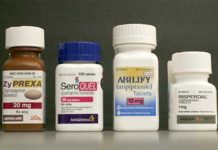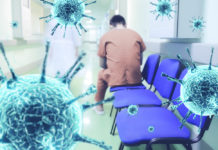The Importance of Having a Breakdown
From The School of Life: Our crisis, if we can get through it, is an attempt to dislodge us from a toxic status quo and an insistent call to rebuild our lives on a more authentic and sincere basis.
Strategies for Tapering and Discontinuing Antidepressants
A new review of strategies to support both patients and practitioners through the process of discontinuing antidepressants.
How to Know What We Don’t Know: An Interview with Psychologist and Novelist Jussi...
MIA's Gavin Crowell-Williamson interviews the neuropsychologist and novelist Jussi Valtonen about how novels can lead us to see the limits of our understanding.
Drs. Pies and Ruffalo Still Rattling Their Wooden Swords
Pies and Ruffalo argue that psychiatric diagnoses are "diseases" because the word "disease" can't be defined, and suggest that circular logic is scientifically valid.
Why Grooming Is So Hard to Spot: The Truth
From the VictimFocus Blog: Grooming should be reframed as a common, normal human behaviour that we all engage in. That's why teaching children and women to "spot the signs" doesn't work.
NZ: Homeless Most Likely to be Fed Antidepressants When Seeking Help
From Stuff: Again and again, homeless people tell their story to officials and agencies. The most common thing they get back, new research suggests, is a script for anti-depressants.
Police Keep Using ‘Excited Delirium’ to Justify Brutality. It’s Junk Science.
From The Washington Post: Several analyses have found that the majority of deaths attributed to 'excited delirium' are associated with the use of physical restraint.
How 1 Panic Attack Led to 15 Years of Psychiatric Drugs
My brain zaps—symptoms of benzo withdrawal—were like having a mini seizure on a daily basis. But my doctor kept telling me that my “underlying” anxiety was causing all my distress.
An American History of Addiction: Ardent Spirits
Our fears about drugs and drug addiction have allowed our society to accept court mandated treatment and the continuing militarization of police.
Overdose Deaths Soar Across Country Amid COVID-19 Pandemic
From The Appeal: "COVID-19 really highlights the risk factors [for deaths of despair] that we know are most prevalent: unemployment, social isolation, disconnection. Those are huge risk factors."
Service-User Knowledge Helps Researchers Develop Psychiatric Drug Tapering Approaches
New strategies for tapering psychiatric drugs achieved by acknowledging withdrawal symptoms and valuing service-users’ first-hand knowledge.
Professional Mental Health Leaders: Experts in Humanity or in Marketing?
A lot of people, perhaps especially Americans, like a quick fix. Unfortunately, for those of us who get the “help” of the mental health system, the results can be disastrous.
Embrace the Messiness! An Interview with Pediatrician Claudia Gold
An interview with Claudia Gold, M.D., pediatrician, infant-parent mental health specialist, author, teacher, and speaker based in western Massachusetts. We discuss the importance of human interaction in child development.
Whose Finger is Taking the Pulse of America’s Shock Treatment Controversy?
My doctors presumed I had agitated catatonia and ran 450 volts of electricity through my head 116 times to “reboot” my brain. They called it electroconvulsive therapy (ECT). I call it Electroconvulsive Trauma.
Mental Health and Emotion in the Digital Age: An Interview with Ian Tucker
MIA's Tim Beck interviews psychologist Ian Tucker about the relationships between digital technologies, emotion, and mental health.
People in Mental Health Crises Need Help, Not Handcuffs
From STAT News: A mental health crisis can be a frightening thing. Those in its throes need help, but all too often get handcuffs
For People “At Risk for Psychosis,” Antipsychotics Associated with Worse Outcomes
Researchers studied whether antipsychotics could prevent transition to full psychosis and found that the drugs worsened outcomes.
Cops Criminalize Protest; Psychiatrists Medicalize It
From Susan Rosenthal: It doesn’t help to replace one form of oppression with another. Like the police, the ‘mental health industry’ is built on discrimination.
Reporting the COVID Crisis at Psychiatric Hospitals: A Missed Opportunity
In its coverage of the impact of COVID on psychiatric hospitals, the media missed opportunities to challenge stereotypes and interrogate problems with current carceral approaches to mental health treatment.
Stop Saying This, Part Two: “Reframing” and More
Myths around reframing, having to love yourself before someone else can love you, and being triggered are all addressed in this blog.
Is COVID-19 Making Everybody Crazy?
The response to the pandemic promises a vast expansion of the market for therapists, but such claims carry great potential for harm, adding to the burdens of people with upsetting but understandable, deeply human feelings.
RCMP Officer Drags Student in Crisis, Steps on Her Head
From CBC: Wang says she was experiencing mental distress and her boyfriend called the RCMP. The officer did not provide assistance.
The Pandemic Claims New Victims: Prestigious Medical Journals
From The New York Times: Two major study retractions in one month have left researchers wondering if the peer review process is broken.
Racism and Radical Psychiatry
A radical caucus within the American Psychiatric Association tried to combat systemic racism in the 1960s. So why is the APA still behind the times?
‘Bear Our Pain’: The Plea for More Black Mental Health Workers
From NPR: Dr Rhea Boyd says racism's toll threads through the psyche, manifesting in many ways, and shaping the youngest of brains.

































